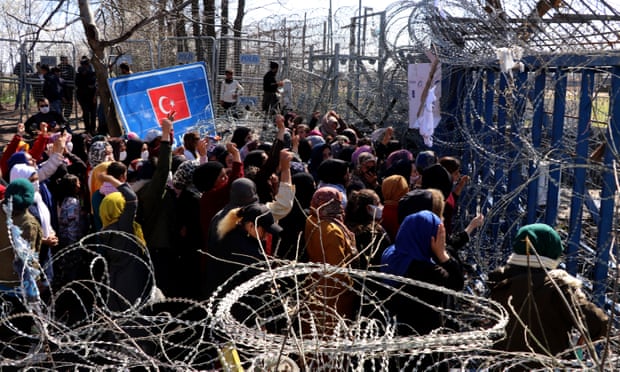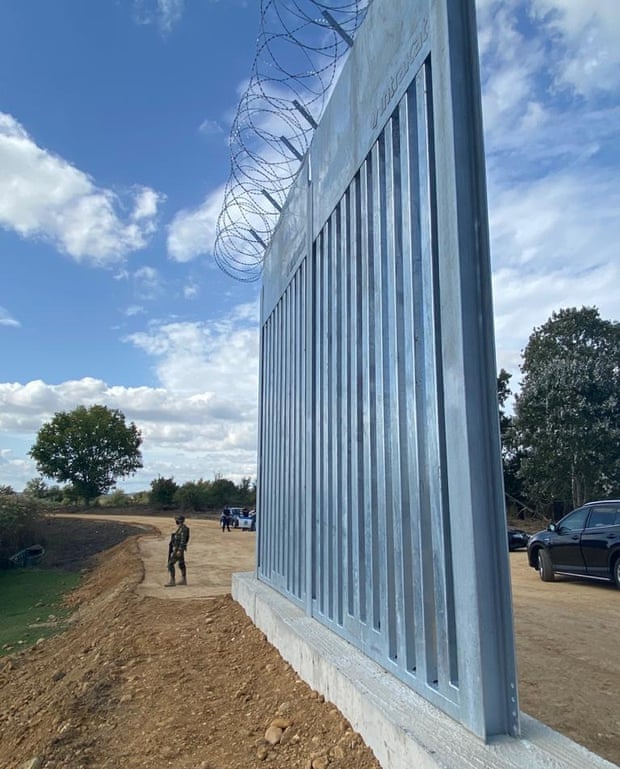Greece extends wall on Turkish border as refugee row deepens
Greece has begun extending a border wall along its frontier with Turkey to deter migrants from trying to enter the European Union, the Greek government has said, after a border standoff earlier this year which has helped drive Greek-Turkish relations to a dangerously low ebb.
A total of 16 miles (26km) of wall will be added to the existing 6 mile fence along the Evros River, which forms much of the Greek-Turkish border, the government spokesperson Stelios Petsas said on Monday.
The €63m (£57.5m) extension will add 5 metre-high fencing and upgrade the existing sections of the wall by using galvanized square steel tubes and concrete foundations, Petsas said. The work is due to be completed in April.
Turkey hosts around 4 million refugees, mostly from Syria. It often threatens to reopen the migrant route from the Middle East, which at its peak in 2015 resulted in thousands of people drowning in the Mediterranean Sea and about 1 million people reaching Greece and Italy where many still live in crowded displacement camps.
In February this year, Ankara declared it would no longer stop migrants from trying to cross into Europe, in an attempt to pressure its western allies into supporting a Turkish military campaign in Syria’s Idlib province.
As a result, tens of thousands of refugees and migrants living in Turkey attempted to cross by land and sea to Greece and Bulgaria in March, although the movement was quickly halted by the outbreak of coronavirus.
According to the UN’s International Organisation for Migration (IOM), 7,357 people crossed from Turkey into Greece in the first quarter of 2020 - only slightly higher than the figures recorded in the same period of the previous year, although deaths at sea increased from 19 to 67 people.
The standoff, however, has still led to tougher border control tactics. Turkey has accused Greece of illegally pushing back migrants reaching its islands in the eastern Aegean Sea, a charge Athens denies, while Greece says Turkey sends patrol vessels to escort migrant boats into its waters.
Greek police told the Associated Press they had started trialling high-powered mobile sirens aimed at deterring migrants as they attempted to cross from Turkey, and an upgraded surveillance camera network is also planned to cover the entire 120 mile Greek-Turkish border.
“The cameras will be a vital resource for us,” said Ilias Akidis, the head of the police officers’ association in the Greek border region. “We have been asking for them for five years and we think they will be very effective.”
The plight of refugees and migrants has been steadily weaponised by Turkish and Greek politicians over the last five years.
Relations between the two countries, frosty at the best of times, have fallen into a deepening crisis in recent months. Disagreements over Cyprus, refugee flows and oil and gas drilling rights in the Mediterranean have drawn in other countries in the region, and for the first time in decades prompted fears of direct clashes between the two Nato allies.
A digital representation of the new wall.






Post a Comment